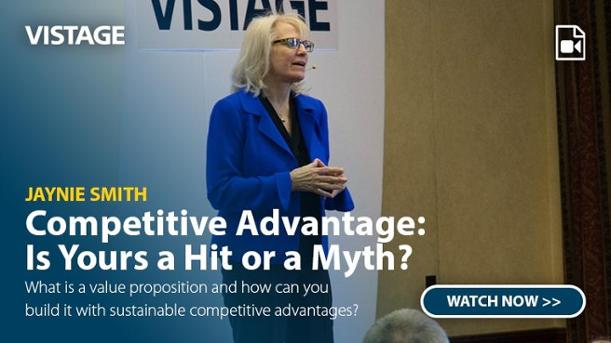
When talking to CEO Group members during recent months, I’ve been surprised how many have been concerned about the Glassdoor phenomenon.
What is Glassdoor?
Glassdoor is, like Monster and Totaljobs, a ‘jobs board’, but with one important difference. Like the others, its primary purpose is to help job seekers find work, but unlike the others, it also allows prospective, existing, and ex-employees (well, anyone really!) to post feedback about an organisation.
Rather alarmingly, somebody wanting to post feedback can create a profile for your organisation without you knowing. Yes, you may not even be aware that your Company has a profile, and things are being posted without your knowledge.
Some members have experienced interviewees using the feature that allows them to post your interview questions and rate your interview process on line for all to see – I imagine this is very popular with those who did not get the job!
Why does all this matter?
Now, perhaps more than ever, there is a war for talent going on, and we are in a candidate driven market place. Talent is in short supply, and to get the best, you have to be the best place to work in your sector/geographical area etc.
You may have seen the great Rainer Strack Ted video that explores all this, and in the UK matters have got worse since the announcement of Brexit (65% of EU nationals regard the UK as a less attractive place to work since the vote).
According to Glassdoor, 61% of candidates seek out company reviews and ratings before applying for a job, and they claim to have 41 million users a month (no idea what that means, but it sounds a lot!).
What are people saying about you on Glassdoor?
Your employer brand is now as important as your product branding (in fact, the two are inextricably linked – people want to work for organisations that produce great products and services), and this is why paying attention to what people are saying on line, and particularly on Glassdoor, is important.
Large companies are applying significant resources to this. You may have seen the Nandos campaign on the London Underground based around Glassdoor reviews, or, take a look at how Unilever produced a YouTube video using Glassdoor feedback in their graduate recruiting campaign.
What should you be doing?
OK, so you are not a Nandos or a Unilever, but your reputation can just as easily be damaged, so, here are five things you should do about Glassdoor.
- Go to https://www.glassdoor.co.uk/Reviews/index.htm and check whether you have a profile. If you already have an un-adopted profile, it will say ‘Is this your Company’ in the top right-hand corner. By registering your ownership, you will ensure that only you can respond to comments that are posted.
- If you adopt an existing profile, or create a new one, use it as an opportunity to promote your organisation as a place to work, and invite members of your team to post honest comments about what it is like to work there. Actively engaging with Glassdoor will help position you as an open, transparent organisation.
- You might get some useful feedback, but don’t rely on Glassdoor for this. It’s much better to be engaging with your colleagues in ways that encourage transparency about how they feel about their work. If you do like the use of technology, then there are loads of employee engagement type surveys, or try one of the ‘real time’ apps. Business speaker and CEO of Cosatto Ltd, Andrew Kluge raves about Tinypulse:-
“I absolutely love Tinypulse because it allows the team to anonymously and honestly tell me what I need to know about what is happening in the business – the good, the bad and the downright ugly. It also allows me to respond to that feedback individually as well as collectively, which shows that I am actually listening to them and that is incredibly powerful”
One thing is for sure, it is better to have an internal escape valve for comments, than disgruntled opinion holders pouring in cold water from the outside.
- Embrace any comments that are posted, being honest about improvements that you need to make. ‘Good point, we’re working on improving that’ is much better than ‘we refute that allegation’!
- Try asking job candidates what they thought about your recruitment process. Some organisations use follow-up surveys, but just asking at the end of the final interview can give you valuable feedback, and give you further insight into the candidate. For instance, do they give you straightforward answers that will help you improve, or are they evasive, perhaps because they don’t yet know whether they’ve got the job.
If you don’t want to ask candidates how they feel about the process, then perhaps you already know where you need to improve!
In the 21st Century our decision making is increasingly shaped by the wisdom of the crowd. We look at online reviews when we buy products on Amazon or research holiday destinations on Trip Adviser.
Looking for postings about a prospective employer is no different. Get through that door!
More from Vistage:
About the Author:
Ken Allison is an engaging trainer and speaker who manages to make his topics, such as employment law and performance management, highly interactive, challenging, entertaining, and above all, relevant to the 21st Century executive. Ken uses his understanding of managing businesses to show managers what they ‘can do’ rather than what they ‘cannot do’.
Ken specialises in employment law related and performance management training for managers, and through his firm’s ‘ExecutiveHR’ service, providing telephone based support services to businesses throughout the UK.
Our gift to you...
Apply now for your personal leadership consultation with a Vistage Chair. They'll help you assess areas of strength of your business and identify areas of potential growth.

